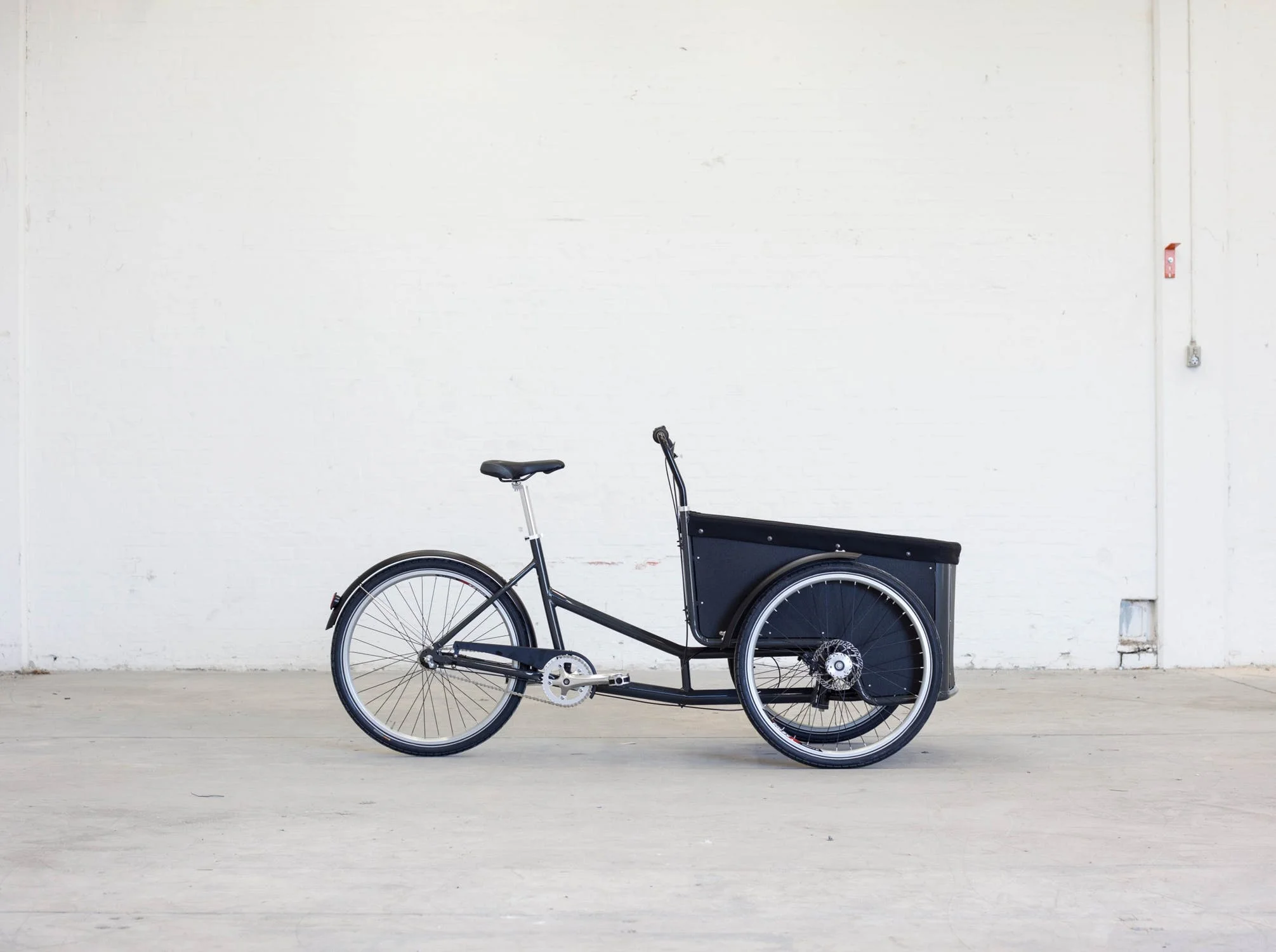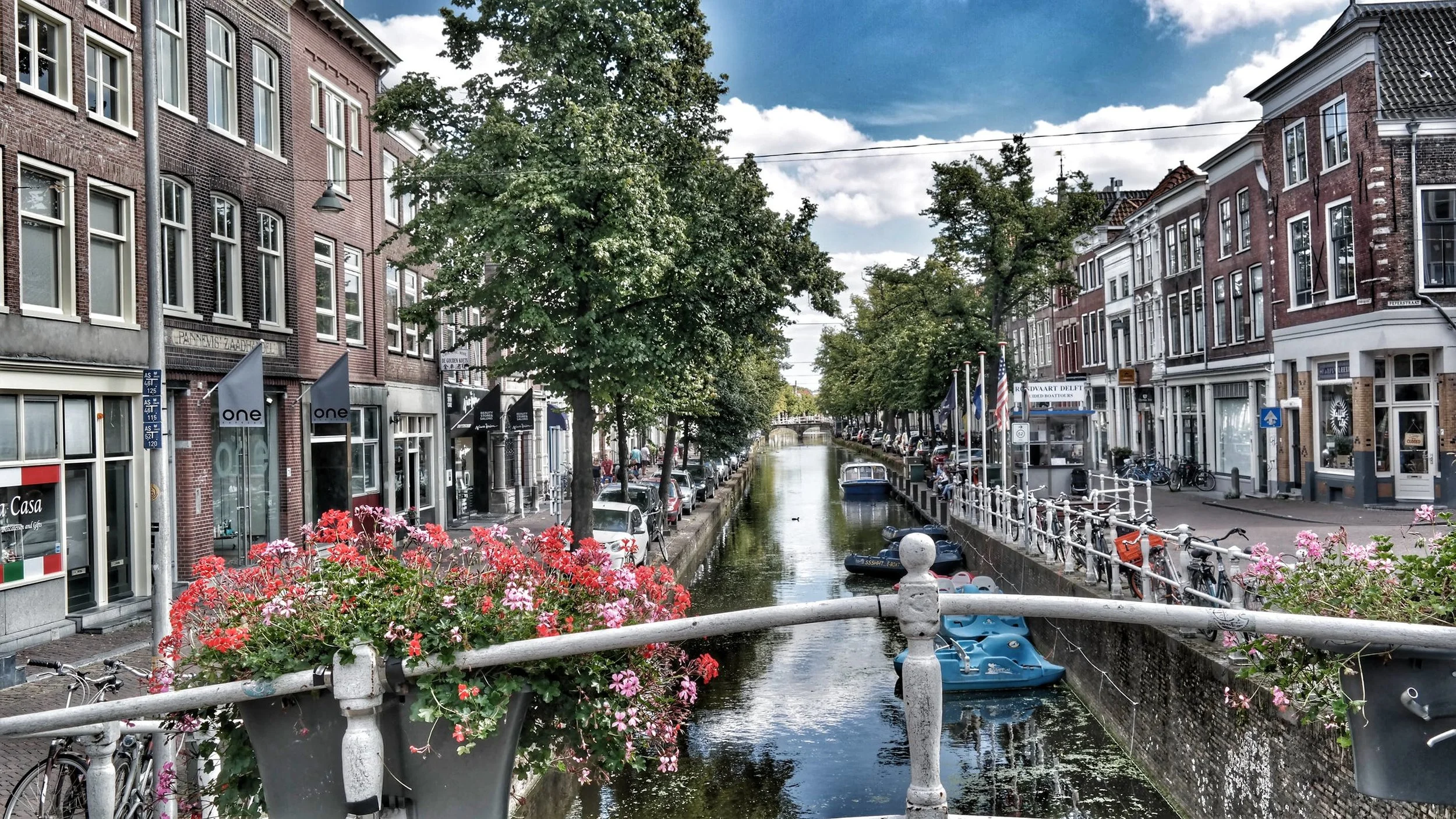Story 2 - Morning cycle
Every morning, I take the same route. I can cycle it with my eyes closed I think, which I probably sometimes do rushing out of the house while dropping keys on the ground, sticking my arm through a jacket sleeve and trying to balance the steering of my chunky old bicycle and a heavy sports bag.
Today, I rush out of the house and out of the dream I was just having, and cycle to the end of my street, turn, cross, cycle some more and finally turn onto the Rapenburg, arguably the most picturesque and by far more expensive part of Leiden. If I am early enough, it is mostly seagulls who keep me company. Today it is past 8 am, and the streets are washed by waves of cycling people; neurotic mothers with a kid in the front and a kid in the back of the bicyle, business people hurrying to their trains and stuffy work desks, students in the haze of a hungover cycling to whatever their appointment might be, and sometimes just back home.
I pass the first 10 meters on Rapenburg, and smile. Every day I turn, a faint sense of foreboding goes through my body, but no, he is still here.
If I manage to be en route to the station any time between 6:45 and 8:15, he is always there, in his sports clothes, on a little tabouret, slightly crouched over his cup of coffee so tiny that it disappears into his big palms.
Joris has just done a bit of sports. This is what I imagine his name is, as my experience with elderly men in the Netherlands suggests. Maybe he walked briskly down the canal streets (in a respectful for his age pace) or cycled outside the city, but by the time I cycle down his home street, his domesticated piece of quiet amidst student housing of Leiden, he is always there greeting me with a barely noticeable flick of his big hand, pealing his fingers off the tiny cup in a wave of acknowledgement of my existence.
All his life, Joris learned and tried copiously all the 67 years of it, to prove to himself that passion is like a storm, a fire, - a dangerous thing. He avoided it as much as he could, as the danger of fire is the lack of control, one moment it warms your wet from the drizzling rain gloves, and another it jumps over walls and bridges consuming everything with its hungry flames. It has never led to anything good, this passion, this spark of crazy, which his mother still had, but father never could accept and suppressed in every accountable move he made, with his measured, thought through, tones of voice. Pacing yourself is the only thing Joris knew, he got it with his upbringing and the position of a lawyer in a small legal practice around the corner from his house, only reinforced it. This philosophy of keeping his cool has led him through his life, and he thought, served him quite well. The only moment he properly lost his senses, was the morning he met Wieteke for the first time at his aunt's house in 1973, and all he could think about for the next few days, was the freckles on the top of her shoulders, and those crazy, little flames in the irises of her.. green? brown? eyes.
The first time he traced her freckles in one careful motion, gently pressing her almost parchment skin with his thick callous fingers, he felt the fire again, growing out of proportion and control. He managed to subdue it, throw a bucket of reason at it, and explain how Wieteke's good upbringing and decent family tree fit his, and took 3 months and 4 days to propose. A steady job, a solid family and a two-storied house on Rapenburg is what followed his, logical in Joris's opinion, zealous loyalty to order and consistency. Carefully controlled, domesticated life he led, captivity which his soul willingly passed months and years in, was key. Key to success in life. Anything to avoid the wildfire.
When Wieteke took only 5 months and 24 days to slip away from him and from life, he took the blow with the dignity only a true votary of his philosophy can. The flickering fire he felt every time he saw freckles on the top of her daughter's shoulders was as much as he was willing to go.
A creature of habit, he sat on the tabouret every morning to have his first coffee, sometimes accompanied by his son or daughter, or the neighbor, a lady in her 70s who always walked as straight as a spear on her little heels carrying her head with pride only the nobility knew how to.
Whenever he saw the red-haired girl with disheveled hair trying to make a sharp turn on a steep bridge across Rapenburg, he considered smiling. Her struggle amused him every time. For a moment, he saw the same flames in her irises and freckle-kissed round cheeks, which once put his whole peaceful existence in danger. Every time she slowly turned the corner, he played with the idea of smiling and wrinkled his forehead. He felt that old tiny flame somewhere under the right rib. It will never get the vigor of a conflagration, but it will always be there waiting. He liked the reminders of it. He liked the memory of his Wieteke. He felt alive that Wednesday.





